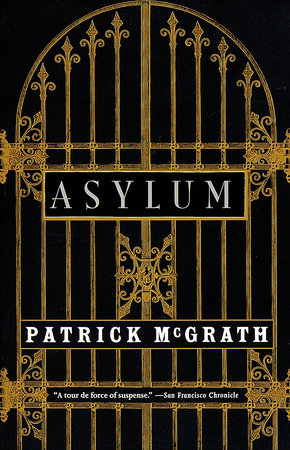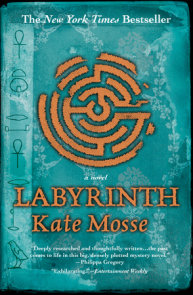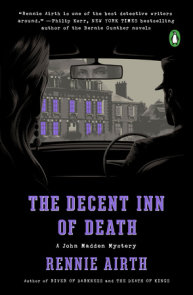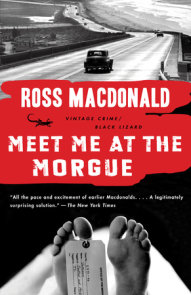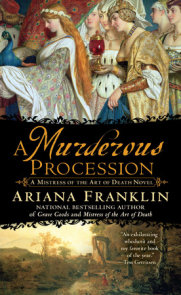READERS GUIDE
The questions, discussion topics, author biography, and suggestions for further reading that follow are designed to enhance your group’s reading of Patrick McGrath’s Asylum. We hope they will inspire new ways of looking at this mesmerizing and suspenseful novel of madness and erotic obsession by the internationally acclaimed author of The Grotesque.Introduction
Stella Raphael, a cultured and elegant but restless young woman, lives with her husband, Max, a forensic psychiatrist, and their small son, Charlie, at a high-security mental hospital in rural England. Isolated from the urban excitement she craves, Stella is unhappy with her husband and her life, and when she comes into contact with the brilliant and attractive sculptor Edgar Stark, a patient who is engaged in rebuilding the asylum’s decrepit Victorian conservatory, she begins to fall in love. Her discovery that Edgar was confined to the hospital after he brutally murdered and disfigured his wife in a psychotic, jealous rage fails to deter Stella from her growing passion, and eventually her love for Edgar is pitted against her husband, her child, the institution, and the entire fabric of her society. Finally Stella makes her choice, precipitating an appalling tragedy and changing the course of several lives. Gripping and disturbing, always surprising, Asylum is an unforgettable portrayal of the darker side of romantic love and the terrifying extremes to which erotic obsession can take us, told with Patrick McGrath’s dazzling combination of exquisite artistry and visceral engagement.Questions and Topics for Discussion
1. Stella thinks Edgar "was guilty of a crime of passion; and passion, in essence, was good, surely?" [p. 17]. "With Stella it was always the heart, the language of the heart" [p. 29]. Peter Cleave classifies Stella as a romantic. Is Stella a romantic? If so, what does her subsequent behavior indicate about romanticism?
2. "As a psychiatrist I wasn’t in the business of moral judgments" [p. 21], Peter says, and he later tells Stella, "It’s only when we feel pain, or the prospect of it, that we start to make distinctions between right and wrong" [p. 148]. Is Peter correct? What does he reveal about himself in making this statement?
3. Peter believes that Stella’s behavior is linked to a desire to hurt Max. "Perhaps that’s the whole point about infidelity, I suggested, not that one has sex but that by doing so one puts at risk someone else’s happiness?" [p. 34]. How much of Stella’s behavior springs from hostility and hate? To what degree is passionate, romantic love inspired by hate or aggression?
4. "Most of us are dying of chronic neglect!" Stella says [p. 48], referring to wives in general and herself in particular. Is Max really neglectful of Stella? What makes her believe that she is being neglected and taken for granted?
5. Discussing Edgar’s condition, paranoia, with Stella, Jack says "we don’t really know how to treat them. Because we don’t really understand what they are." [p. 72] Is he talking about his patients, she wondered, or women? Why does Stella think this at this time? What is the cause of her anger? Is Stella resentful at being a woman in a male community?
6. What is Stella’s reaction when Jack tells her that Edgar had decapitated his wife and taken her eyes out? What does this reaction say about her, her motivations, her state of mind?
7. The action of Asylum takes place over the course of exactly one year. Why does the author present the story in this way? How do the seasons, and the change of seasons, affect Stella’s thoughts and emotions?
8. What can you deduce about Max’s feelings for Stella from the way the story is told? Does he act from love, from hate, from a mixture of the two? Do you find Max a sympathetic character, or do you agree with Stella that he is cold and sexually indifferent to her?
9. Stella tells Peter that during the early days of their romance she and Edgar experienced "a breakdown of their separate egos, a falling away of personality, a sense of identity, a sense that they were essence to essence…" [p. 78]. Do you believe that Edgar experienced this in the same way?
10. We see Brenda principally from Stella’s point of view. Is she actually as unpleasant a character as Stella finds her to be? What purpose does she serve in helping to understand Stella?
11. How does Stella define the term "freedom"? When she claims to be seeking freedom, what does she mean? Is the sort of freedom she craves really possible? Does she ever find it?
12. How would you characterize the relationship between Stella and Charlie, and how does it change during the course of the novel? Does she behave as a typical mother? How does her erratic behavior toward Charlie in Wales illuminate the deterioration of her psyche?
13. "Was she really so blind to the danger she had placed herself in?" Peter asks himself. "Had she learned nothing from living among psychiatrists?" [p. 95]. What do you think: is she really blind, or does she choose to be so? Or does she willingly court danger, and if so, to what end? In her dealings with Edgar, do you find that Stella deliberately provokes him to violence?
14. What motivates Nick, very much at his own risk, to shelter Edgar from the law and, ultimately, to shelter Stella from Edgar? Do you believe that he enjoys the element of danger that his actions provoke? Do you think that he loves Stella? Or that it is Edgar he loves
15. Why does Max take Stella back after her return from London, and why does she decide to stay with him? Why does Max decline to tell Stella that Edgar might have made his way to Wales [pp. 184-85]?
16. Why does Stella allow Charlie to drown? Might his death be beneficial to achieving her desires? Does she really imagine that it is Edgar she sees sinking beneath the waves? Does Peter believe her when she makes this claim, or does he imply that she is lying?
17. "You had to explain it. . . either she was a monster or she was mad" [p. 202]. Peter decides to believe in her madness: "a classic Medea complex" [p. 211]; Max adopts a more theological outlook, positing the reality of good and evil: "She should be in prison" [p. 228]. Which man do you agree with? Is Stella evil, or merely misguided?
18. Edgar "idealized" Stella, Peter claims, "and then had to struggle against the chaos of his own passions when the image he’d created could no longer be sustained. I think perhaps it’s what he was unconsciously trying to get at in his last sculpture, despite his claim to be engaged in an attempt to overthrow habit and convention in seeing" [p. 253]. Do you find this connection between Edgar’s art and his feelings to be a plausible one?
19. As the novel progresses, Peter reveals more and more of his character, his will, and his motivations to the reader. Just how unambitious or ambitious is he? What are his real feelings toward Stella? What are his feelings toward Edgar? How far has he succeeded in manipulating the action, and the characters? What does the last sentence of the novel suggest?
20. Why do you think McGrath has chosen "Asylum" as the title for his book? What are the two meanings of the word, and are they connected or contradictory? At home with Max, Stella thinks of the asylum as a prison; frightened and penniless in London, she remembers it as a "misty mental realm where the sun always shone and order prevailed…a castle keep on a rocky ridge, and within its walls security and plenty" [p. 117]. In your opinion, what is the real character of the asylum?









